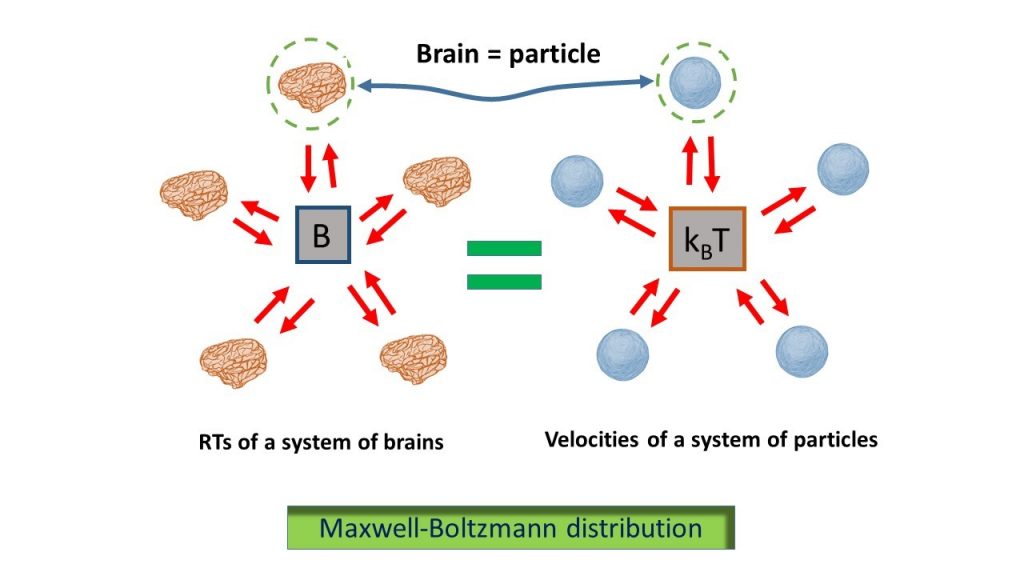El lunes 14 de octubre en la clase de Modelización matemática en la industria, el profesor de la asignatura, Pedro Fernández de Córdoba , invitó a participar en la misma al Dr. Juan Carlos Castro Palacio, Investigador Invitado del Instituto Universitario de Matemática Pura y Aplicada de la Universidad Politécnica de Valencia.
In this presentation, the results of an ongoing research are presented. The consequences of the appearance of the Ideal Gas theory when describing the response time data of a group of individuals are discussed with the students. The focus is put on interpreting the reaction times of a group of individuals (which is relevant for the different contexts of social sciences) rather than on a single person’s response.
An individual’s reaction time data to visual stimuli is usually represented in Experimental Psychology by means of an ex-Gaussian function, which results from the convolution between a Gaussian and an exponential function. The parameters of the ex-Gaussian function are usually interpreted in relation to psychological phenomena, such as cognitive disorders. However, even when the ex-Gaussian function represents well the response time data of an individual, it fails to provide a complete characterisation of the response of a group of individuals. It can be proven that the collective response is captured by a Maxwell-Boltzmann distribution. In this respect, the same model as for a system of non-interacting particles emerges from the experimental reaction time data (see figure below). In order to validate our model, we used 24192 experimental reaction times, obtaining a coefficient of determination of R2 = 0.83.
This model has many useful applications, for instance, we can know about the behaviour of a single individual in relation to the contemporary group to which they belong. A physical entropy can also be defined and used for the classification of the individuals forming the system. This can be particularly important when it is necessary to search for individuals with a non-normative behavior, a common situation in Education, Health, and Social Sciences in general.



